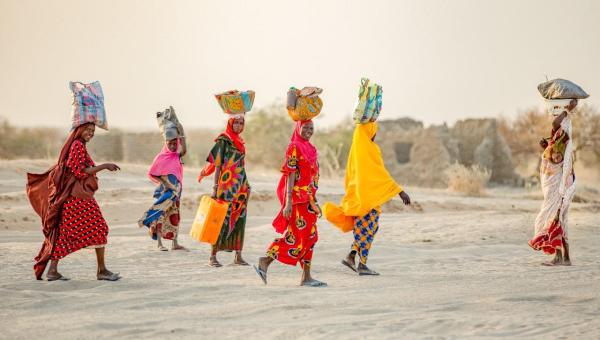
European Union
UNDP - Belgium partnership
Our Strategic Plan 2022-2025 aims to address the increasingly complex and overlapping issues testing our planet and societies. It recognizes the urgent need to tackle challenges related to inequality, climate change, and governance.
Partnerships are a cornerstone of our work, essential to eradicating poverty, supporting countries on their pathways towards the SDGs and the Paris Agreement, and building foundations for sustainable development and lasting peace.
Belgium is one of UNDP’s top 15 multi-year contributors to core funding, which enables us to ensure rapid and agile responses when crises strike, drive innovation and scale transformative solutions to address extreme poverty and maximize the impact of every dollar spent. It empowers us to immediately support the most vulnerable from Day One. Core resources underpin UNDP’s operational capacity, networks, and presence at global, regional, and country levels, in 170 countries and territories.
Belgium’s support has been vital in helping the world’s poorest countries battle poverty and inequality, build resilience to shocks and crises, strengthen transparent reporting on national climate plans in the Francophone and Lusophone developing countries through the Climate Promise, and tackle gender-based violence.
More so, Belgium has been supporting UNDP initiatives in countries of priority assistance for its development cooperation, mainly in Africa and the Arab States regions:
- In Ukraine, which is now the most mined country in the world, Belgium's support is vital for mine action and assistance to victims. It also supports the rebuilding of the country’s energy infrastructure.
- In Gaza, where solid waste management systems have collapsed resulting in a public health emergency, our partnership supports with emergency employment opportunities throughout the health and solid-waste management sectors.
- In Burundi, our joint work drives sustainable conservation efforts in the country’s largest and most biodiverse national parks and supports Indigenous People through participatory management of natural resources.
- In Benin’s border regions, where agricultural communities are severely impacted by climate change, we are strengthening their resilience by promoting sustainable agriculture and empowering women and youth.
- In the Koulikoro Region in Mali, we focus on building resilience, restoring ecosystems, and supporting vulnerable communities in the face of desertification and climate security.
- In Rwanda, we are expanding the social and economic inclusion of youth, women and persons with disabilities, key for the country's development reset.
- In Senegal, our work is driving inclusive local development, prioritizing gender equality and positive masculinity.
- Over 1.46 million people in Iraq’s Liberated Areas have benefitted from Belgium’s contribution to our Funding Facility for Stabilization that enables the reconstruction of critical infrastructure.

UNDP-Belgium Strategic Dialogue on October 3 in Brussels took stock of the partnership and discussed future strategic priorities.
News

 Locations
Locations



